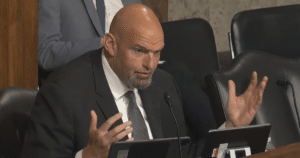Biden Weighs Pre-Emptive Pardons for Trump Adversaries
President Joe Biden is considering issuing pardons to individuals who could be potential targets of political reprisals by President-elect Donald Trump. The discussion, which involves figures such as Liz Cheney and Dr. Anthony Fauci, reflects a divided opinion among lawmakers on the potential consequences and merits of such pardons.
In a recent interview, Biden revealed his contemplation of this controversial move as part of his effort to address the tumultuous political landscape. The conversation was made public following its release on a Wednesday morning, shedding light on the Oval Office's deliberations over the weekend with USA Today's Susan Page.
Biden has not confirmed his stance, highlighting his ambivalence on whether he will proceed with pre-emptive pardons. He previously urged Trump post-election victory not to pursue actions driven by personal grievances. This appeal came amid growing concern about possible politically motivated retaliation against certain individuals.
Controversy and Concerns Surround Potential Pardons
Reports have surfaced regarding the possibility of political retribution from Trump, prompting Biden to consider protective measures for those potentially at risk. This dialogue on pre-emptive clemency has sparked varied responses, particularly among Democratic lawmakers.
Biden’s record with pardons adds to the complexity of the situation. Recently, he pardoned his son, Hunter, following his felony convictions. Furthermore, in a historic move in mid-December, Biden commuted the sentences of approximately 1,500 people, representing the largest single-day act of clemency during his tenure.
Some Democrats are wary of the precedent set by issuing pardons that broadly protect Trump's political adversaries. This debate includes discussions on the implications such actions might have on future administrations and their clemency powers.
Democratic Opinions Differ on Pardon Necessity
While some Democrats express reservations, others argue the potential necessity of such pardons to guard against politically charged actions by the incoming administration. Notably, Sen. Adam Schiff voiced his concern over the notion of presidents handing out blanket pardons, although he avoided stating whether he would personally endorse such clemency.
In contrast, Sen. Ed Markey supports pre-emptive pardons as a potentially crucial defense against anticipated injurious actions. Markey characterizes Trump’s potential future conduct as dictatorial and revenge-driven, suggesting that pre-emptive pardons could serve as a necessary safeguard for the nation.
Ongoing Debate and the Path Forward
The internal Democratic debate highlights the tension between setting precedents and protecting individuals from possible political vengeance. While Biden grapples with the decision, the question remains whether such preventive measures will achieve their intended protective purpose or if they will further complicate the political environment.
Biden’s most recent pardons have already raised eyebrows. The large-scale commutation of over a thousand individuals’ sentences was a move that underscored his administration’s approach to clemency but also drew attention to possible motivations behind pardoning certain political figures in the current context.
Weighing the Impact of Biden's Decision
As January 20 approaches, Biden's decision-making becomes increasingly critical. Endorsements and critiques of the proposed pardons reveal the broader concerns over institutional norms and justice within the political system.
With the potential for political turbulence under Trump, the debate over pre-emptive pardons reflects broader questions about the balance of power and the protection of political integrity. The unfolding discussions represent not just an issue of individual clemency but also a deeper examination of democratic principles.
Conclusion of Future Developments
President Biden’s dilemma serves as a reminder of the intricate nature of political decisions that bear long-term implications. As the 2024 inauguration nears, the resolution of this issue remains to be seen, holding the potential to reshape the political landscape and impact interactions between current and future administrations.
The ongoing dialogue underscores the importance of thoughtful deliberation amid politically charged narratives. Whether Biden will ultimately extend pardons remains uncertain, emphasizing the enduring question of how best to navigate the modern political era’s challenges.




